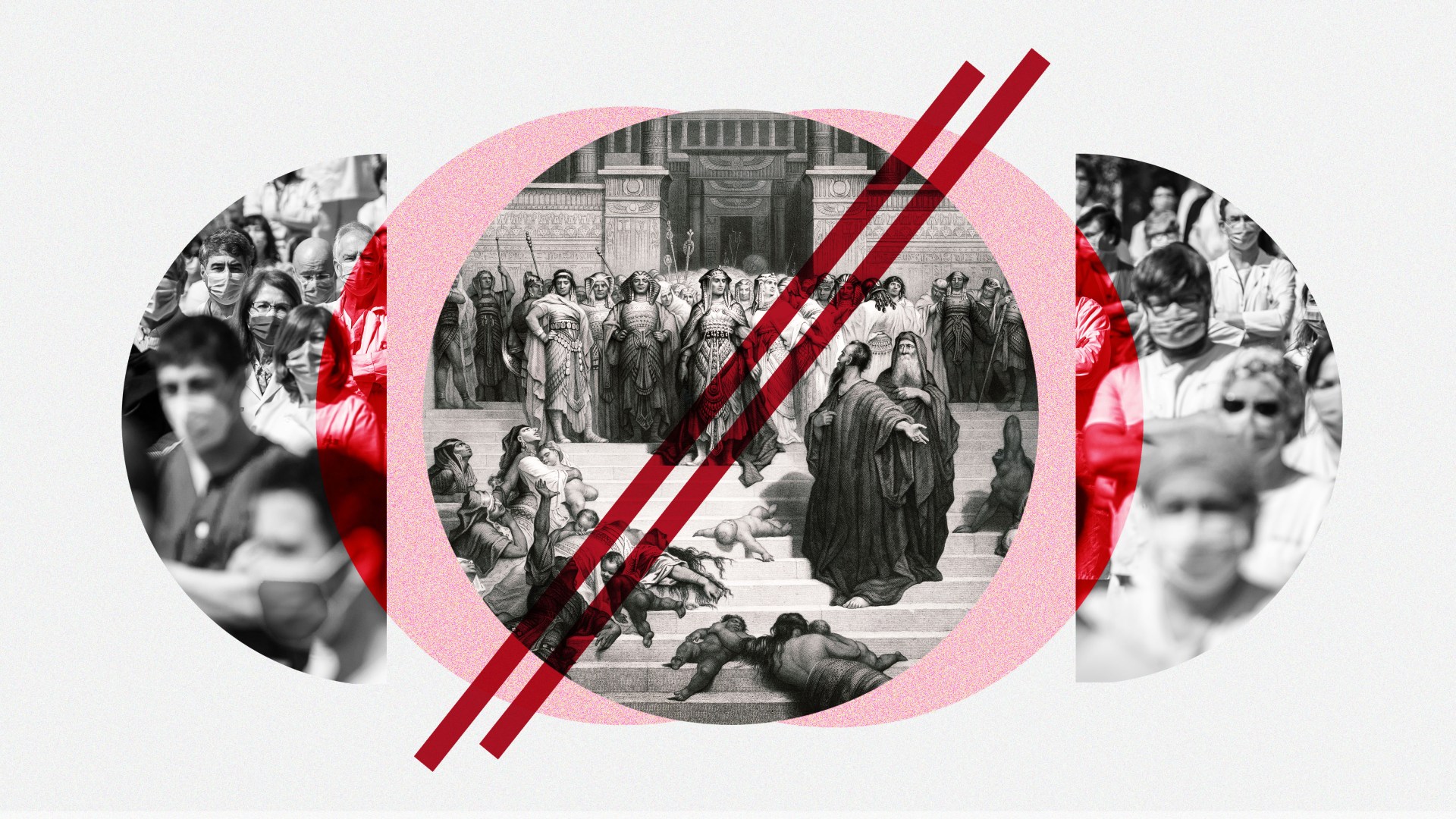A prominent church where I live put up a billboard that drew citywide attention: “Is the coronavirus a judgment from God?” This is the most common question I’ve been asked since the pandemic began.
It’s easy to quote the Bible in support of such positions, from plagues in Egypt to the destruction of Jerusalem to the Book of Revelation’s prediction that the world will be judged with “pestilence.”
However, these are not those days. We can know this for two reasons.
First, biblical judgments through disease are supernatural in origin.
When God sent “boils” on Egypt, they broke out instantly “on man and beast” throughout the land. The “pestilence” of Revelation will come by one of the “four horsemen of the apocalypse,” not a wet market in Wuhan.
Everything scientists can tell us about COVID-19 is that the virus evolved from other viruses. It is natural, not supernatural. God did not cause this virus or the pandemic it has created. Like other natural diseases and disasters, it is a consequence of living in a fallen world.
Second, biblical judgments are against specific sins and sinners.
From Pharaoh’s obstinacy to Miriam’s racial prejudice to Herod’s prideful idolatry, divine judgments of the past and future come to those who refuse his word and will. Throughout Scripture and history, God deals with us as gently as he can or as harshly as he must.
No specific sins caused this virus. Nor are those who are afflicted with it more sinful than the rest of us. God loves the Chinese people just as much as he loves Italians, Koreans, and Americans. He loves the elderly and those with preexisting conditions just as much as he loves the young and the healthy.
One fact this pandemic emphasizes is that we are all part of one race—the human race. And we are all in this together.
While God did not cause this pandemic, neither has he left us to face it alone.
He is with health care workers as they risk their lives to care for patients. He is with grocery workers and delivery drivers as they serve those who can stay safely at home because of their sacrifice. He is with those who are now unemployed and those who would shelter at home if they had one.
He is with patients who suffer and families who grieve. As Jesus wept for Lazarus, so he weeps with us and for us.
And God is doing more than hurting with us—he is redeeming this tragedy in amazing ways.
We’re seeing an outpouring of financial generosity unprecedented in my lifetime. We’re watching churches and agencies that would never have cooperated two months ago working together to save lives. Millions of people around the world are sacrificing their incomes by staying home to protect people they don't know.
In the season of Passover, Jews around the world were thanking God for their deliverance from Egypt. When Ramadan begins next week, Muslims around the world will thank God for the Qur'an. Christians recently observed Good Friday and celebrated Easter as we thanked God for our Savior.
Our monotheistic faiths differ in foundational ways, but we share this belief in common: God is with us. As a song I learned in my childhood reminds us: He didn’t bring us this far to leave us.
Jim Denison is the founder of the Denison Forum.
Speaking Out is Christianity Today’s guest opinion column and (unlike an editorial) does not necessarily represent the opinion of the publication.









